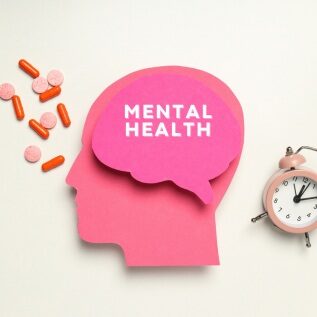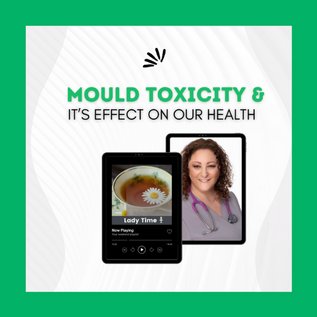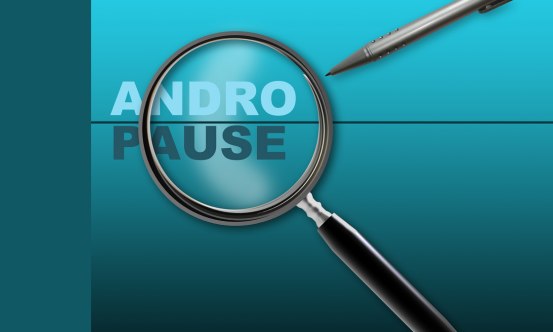
Why Mental Health Meds May Be Masking the Real Problem
When it comes to mental health, the common approach is often a fast fix prescription and a quick label – depression, anxiety, bipolar, OCD. While medications may provide temporary relief or symptom suppression, they rarely address the root cause of what’s going on inside the body and brain.
In fact, for many people, the underlying reasons for mental illness might be biochemical, environmental, or nutritional – and until those root issues are investigated and addressed, medications may simply be putting a band-aid over a deeply embedded wound. So in this blog we are going to go through some of the things we look at when our clients come to us looking for an alternative approach to managing their mental health, or they have high scores in this area in their root cause analysis.
Common Root Causes of Mental Health Issues Overlooked
The 5 Biotypes of Depression
Mental illness isn’t one-size-fits-all. If depression is what you suffer from, we first look at the possible biotypes that could be the missing piece the the puzzle causing your symptoms.There are at least five different biotypes of depression, and each one requires a unique approach. For example:
- Undermethylation & Folate Deficiency: This can stem from liver dysfunction and impacts neurotransmitter production, especially serotonin and dopamine.
- Overmethylation: The opposite issue – too many methyl groups, often from a congested liver or supplement overload – can worsen symptoms and cause agitation or anxiety.
- Copper Overload: Common in women and those on hormonal medications, excess copper can impact dopamine levels and exacerbate mood disorders.
- Pyrrole Disorder: Pyrrole disorder is very common. It is a biochemical imbalance affecting zinc and B6. Pyrroles can lead to heightened stress responses, emotional sensitivity, and mood swings.
- Toxicity: From synthetic lights and processed food to environmental pollutants and toxic mold – our bodies are overwhelmed, and so are our brains.
Gut Health and Microbiome Issues
We also investigate the state of your gut health. Most people don’t know that the gut creates about 90% of the body’s serotonin and melatonin, the two neurotransmitters responsible for mood regulation and sleep. So if you’re dealing with bloating, IBS, or food sensitivities, that could be directly feeding into anxiety or depression.
- Essential Fatty Acid Deficiencies affect brain inflammation and mood.
- Nutrient Imbalances from modern diets (low magnesium, B-vitamins, and omega-3s) impair neurotransmitter synthesis.
- Hydration and sunlight exposure both play a key role in regulating the nervous system.
- Unaddressed trauma: This is an obvious one – unaddressed trauma and stress.
Neurotransmitter Imbalances
From our experience, we find that 90% of mental health disorders stem from imbalanced neurotransmitters like GABA, glutamate, serotonin, and dopamine. These imbalances can come from:
- Chronic gut issues or liver congestion
- Hormonal imbalances (especially around menopause or post-birth)
- Inflammation from food intolerances or toxins
- Stress and trauma
So we also investigate all of these areas to see what your scores are.
Medication Side Effects & Interactions
Another thing that might be affecting your moods, that a lot of people don’t consider, is medication and supplement interactions, which we also cover in our RCA thoroughly. Sometimes the very medications meant to “help” with mental health can actually make things worse, especially when taken long-term or in combination with other drugs or supplements. Many psychiatric medications can lead to:
- Emotional flatness or disconnection
- Liver stress or congestion
- Depletion of vital nutrients like B vitamins, zinc, or magnesium
- Increased copper levels (especially concerning for women)
- Unintended interactions with other medications or supplements
- Worsening of mental health symptoms due to side effects
This isn’t to say that all medication is inherently “bad.” It can be life-saving for some. But it should only be considered a last resort, not the first line of defense – especially if the root cause of your symptoms hasn’t been explored.
At our clinic, when clients complete our Root Cause Analysis health assessment consultation, we frequently find that they’re taking multiple medications or supplements that shouldn’t be combined. In many cases, these combinations are causing severe side effects – or even cancelling each other out completely.
Even well-meaning doctors can overlook interactions, especially in short consults with a lack of health history on hand. That’s why it’s crucial to:
- Research every medication or supplement you’re taking
- Ask questions about interactions
- Work with a practitioner who looks at the whole picture
- Be your own health advocate
Mold Toxicity & Mental Health
Mold exposure doesn’t just affect your body – it can deeply impact your mind. Mold toxicity can heighten trauma responses, increase inflammation in the brain, and mimic symptoms of anxiety, depression, and even neurological disorders. Many people living with chronic illness, fatigue, or mood imbalances have no idea that mold is playing a role.
Some eye-opening facts:
- Over 70% of homes contain mold
- Mold toxins can dysregulate your nervous system and limbic brain‘
- It often causes symptoms that resemble anxiety, panic attacks, or PTSD
- It can be misdiagnosed as a psychiatric disorder
If mold toxicity is left unaddressed, it can pull the strings on both physical and emotional health, making mental health symptoms worse – and harder to treat with conventional approaches alone.
The Mental Toll of Not Doing What You Love
Purpose and joy aren’t luxuries – they’re essential for mental wellness. One of the most underestimated contributors to anxiety, depression, and burnout is living a life that’s out of alignment with your values, passions, and purpose.
We’re not just biochemical beings – we’re emotional and spiritual, too. When we ignore what lights us up or stay stuck in jobs, routines, or relationships that drain us, the nervous system suffers. Over time, this creates:
- Emotional numbness or apathy
- Low motivation and fatigue
- A sense of hopelessness or “what’s the point?”
- Worsening symptoms of anxiety or depression
- Disconnection from creativity and inspiration
You might be taking the “right” supplements, doing the breathwork, and eating clean – but if you wake up dreading your day, your body interprets that as chronic stress. And that stress can throw off your hormones, neurotransmitters, and immune response.
Joy is a nutrient. Purpose is medicine. Part of getting to the root cause of mental health issues is asking:
- Am I doing what I love?
- Have I been silencing my passions for the sake of survival or pleasing others?
Reconnecting with hobbies, creativity, play, and your deeper calling is not self-indulgent – it’s biologically necessary.
It’s in Your Health History
A rushed appointment won’t uncover decades of underlying issues. Doctors today often only have 8–10 minutes per consult. That’s not enough to explore your full health history – and without that, it’s easy to miss the root cause.
Taking away symptoms isn’t the same as healing. When you stop medication, the symptoms usually return. Why? Because the cause was never resolved.
We believe your health history is so important. That’s why our Root Cause Analysis includes a 17-page questionnaire covering everything from emotional health to food sensitivities to environmental exposure. It’s long and tedious, but it has to be done to get some real answers that often go overlooked.
Before You Reach for the Medication…
If you’re struggling with mental health, know this: your body is trying to communicate with you. Are you feeling depressed, anxious, or just completely overwhelmed? Have you ever stopped to ask why – really why – you feel this way? If you haven’t explored any of the things mentioned above, please do yourself a favor and complete our free Root Cause Analysis Health Assessment . It could change everything.
We get it – most people are skeptical. Some don’t fill it out because they don’t know what to expect, and some don’t have the time. But nearly everyone who does is shocked by what they discover. You walk away with real answers, not guesses. And the best part? It costs you nothing.
No pressure, no gimmicks – just the truth and a clearer direction. If you’re tired of feeling stuck, this is a good place to start.



